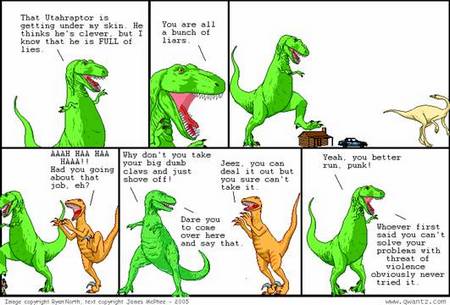Civ
 16 – 17: Ways of Action in Conflicts
16 – 17: Ways of Action in Conflicts
The aim is that students get better insight in the factors which influence behaviour in conflict situations. The task is that, through analysis of the situation given, students notice dimensions that determine behaviour in conflicts and to point out different ways of action in conflict situation. What are the types of conflicts? Conflicts were being examined since Kurt Lewin, Brown and Miller. Conflicts in group (about status, power, interests, loyalty etc.), interpersonal conflicts (conflicts about system of values, motivational, emotional, between wishes and someone other’s attitudes etc.), intrapersonal conflicts (between desire and ban, wish and possibility, conflict of authenticity etc.). What are the reactions on conflicts? What are the mechanisms of defense? How are the conflicts taken care of? What are the facilitator and mediator? Students should realize the existence of five ways of action in conflicts:
- Retreat (if one side does not care of his or the interests of another side)
- Indulgence (one takes more care of the interests of another side than of his own)
- Competition (one takes care only of his own interests and neglects the interests of another side)
- Solving of a problem (taking care of the interests of both sides at the same time)
- Compromise (we partially take care of our and someone else’s interests)
 Literature:
Literature:
- The Guidebook for Teachers “Civic Education” for the 1st grade of secondary school, Ministry of Education and Sport, Republic of Serbia;
- Crum T. “The Magic of Confict”;
- T. Mandic “Psychology of Communication”;
- Tillet G. “Resolving Conflicts”;
- B. Schultz “Conflict Resolution in Negotiation Journal”;
- Alfred Adler “The Practise and Theory of Individual Psychology”.

























